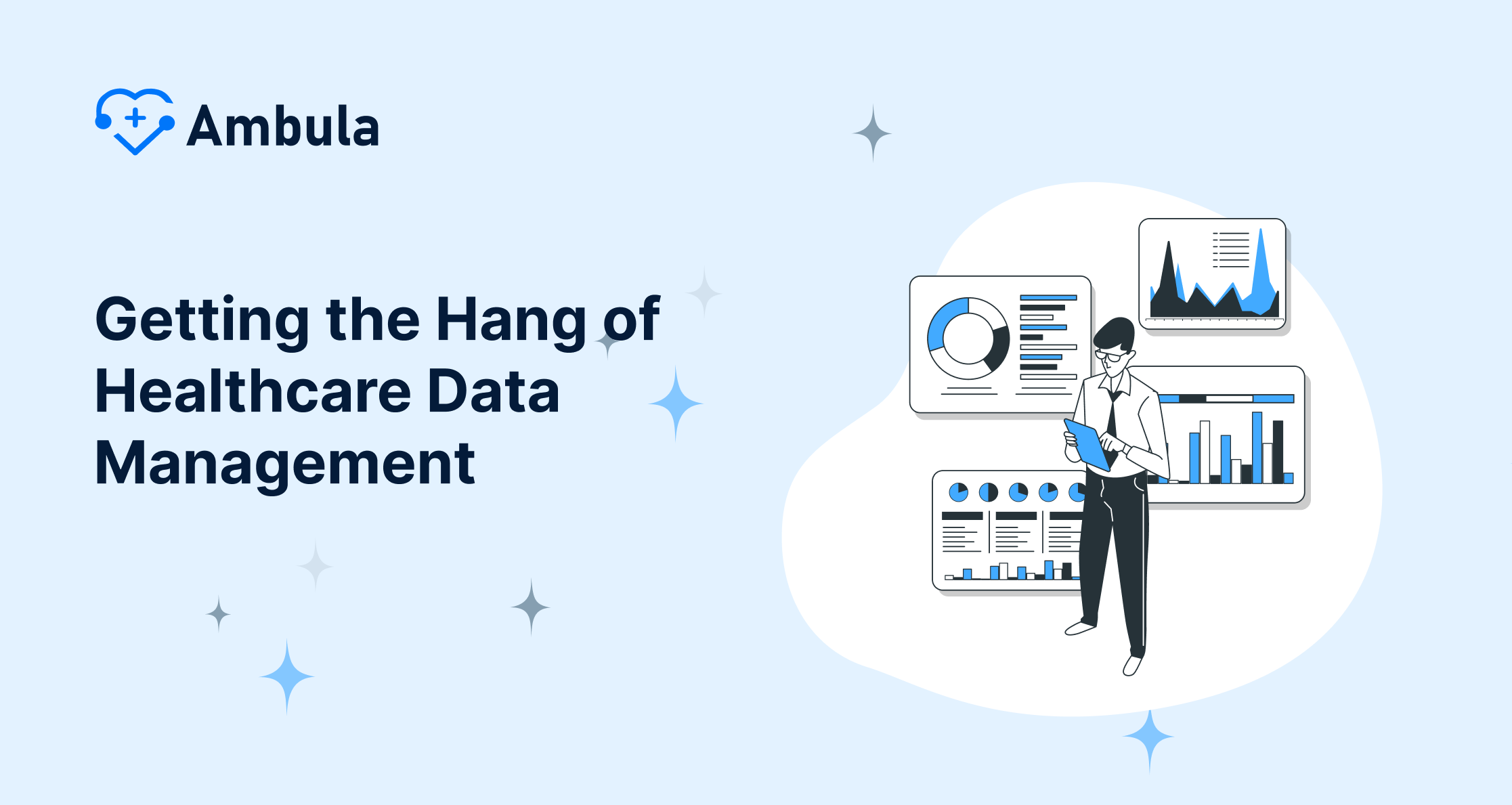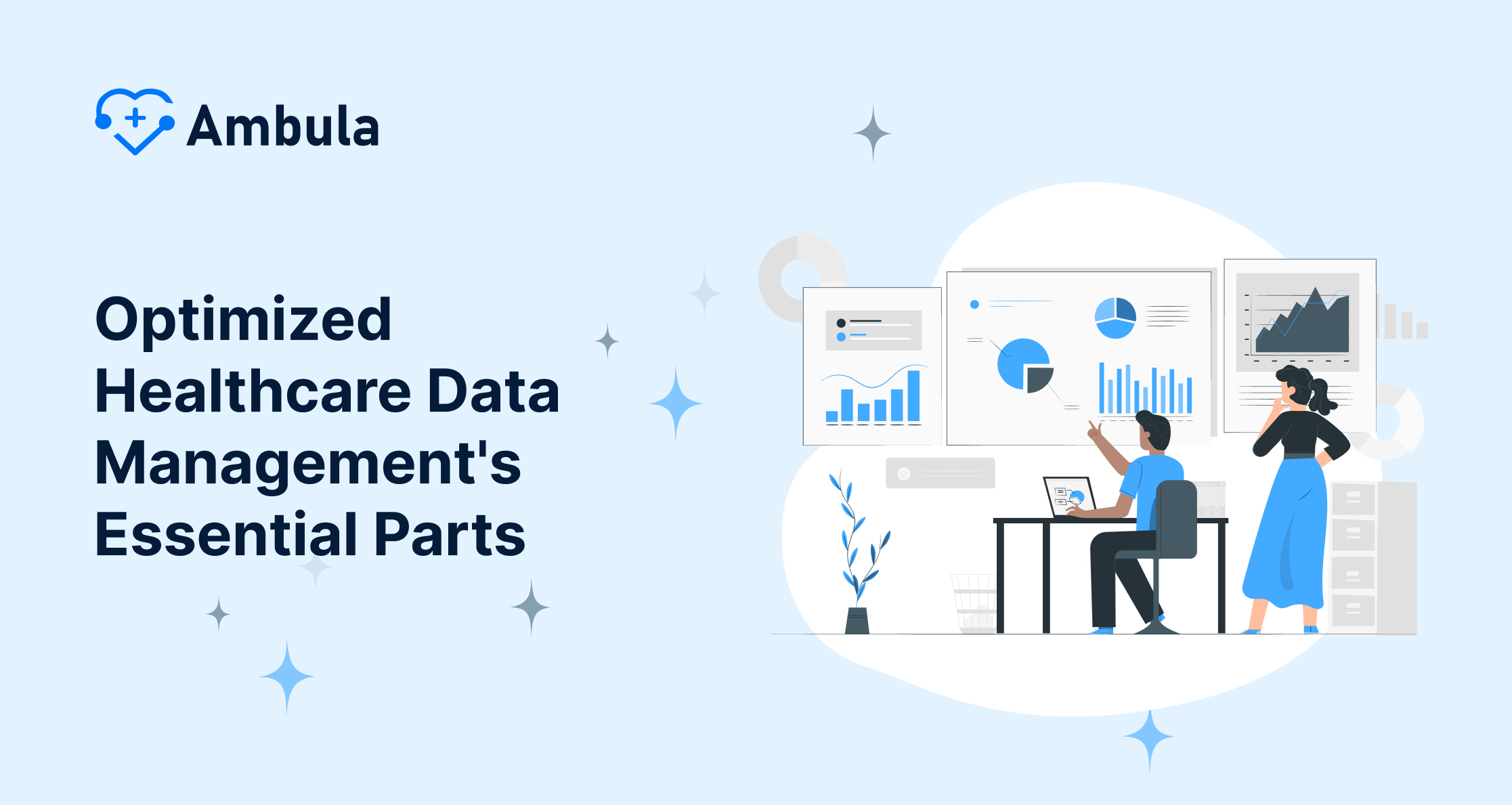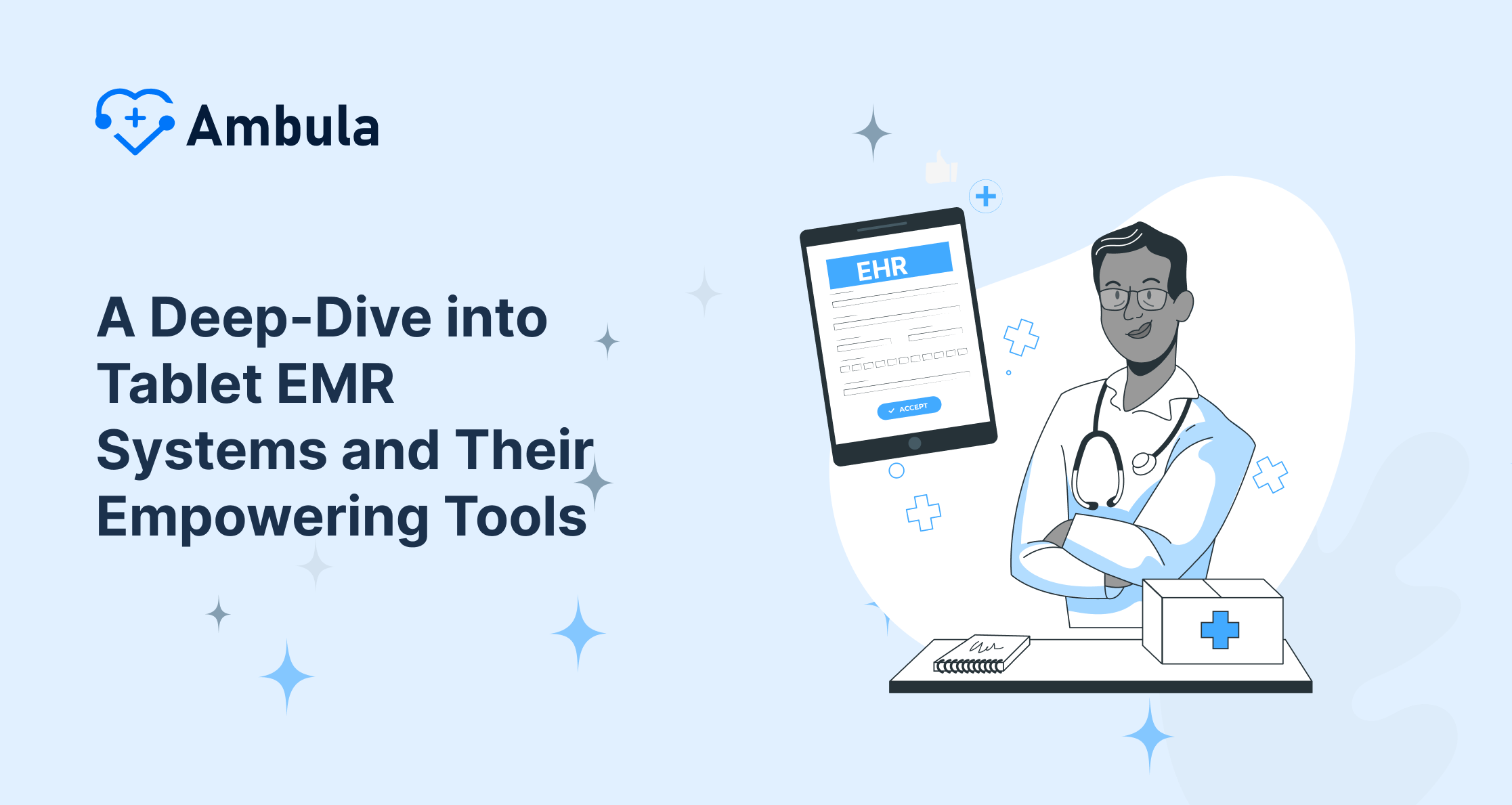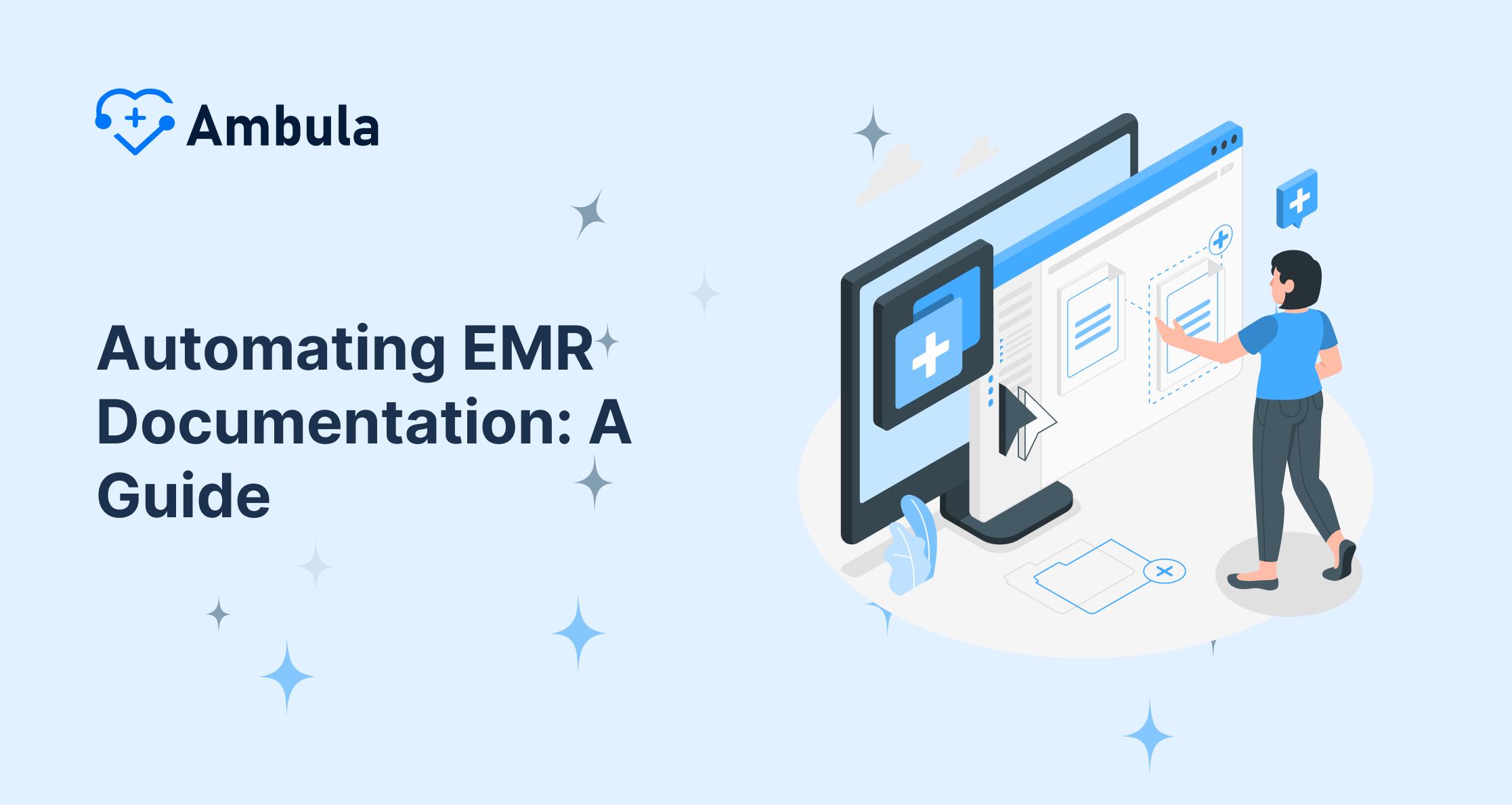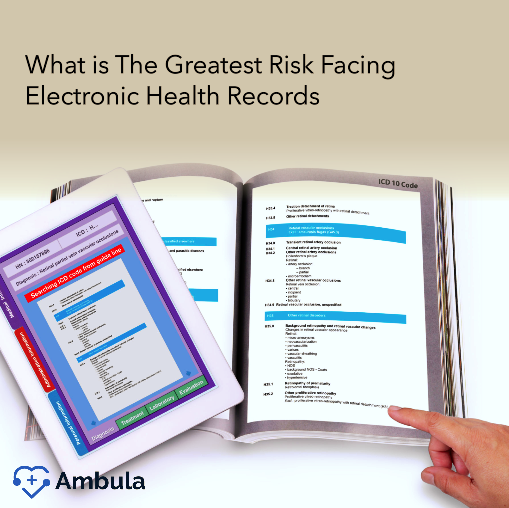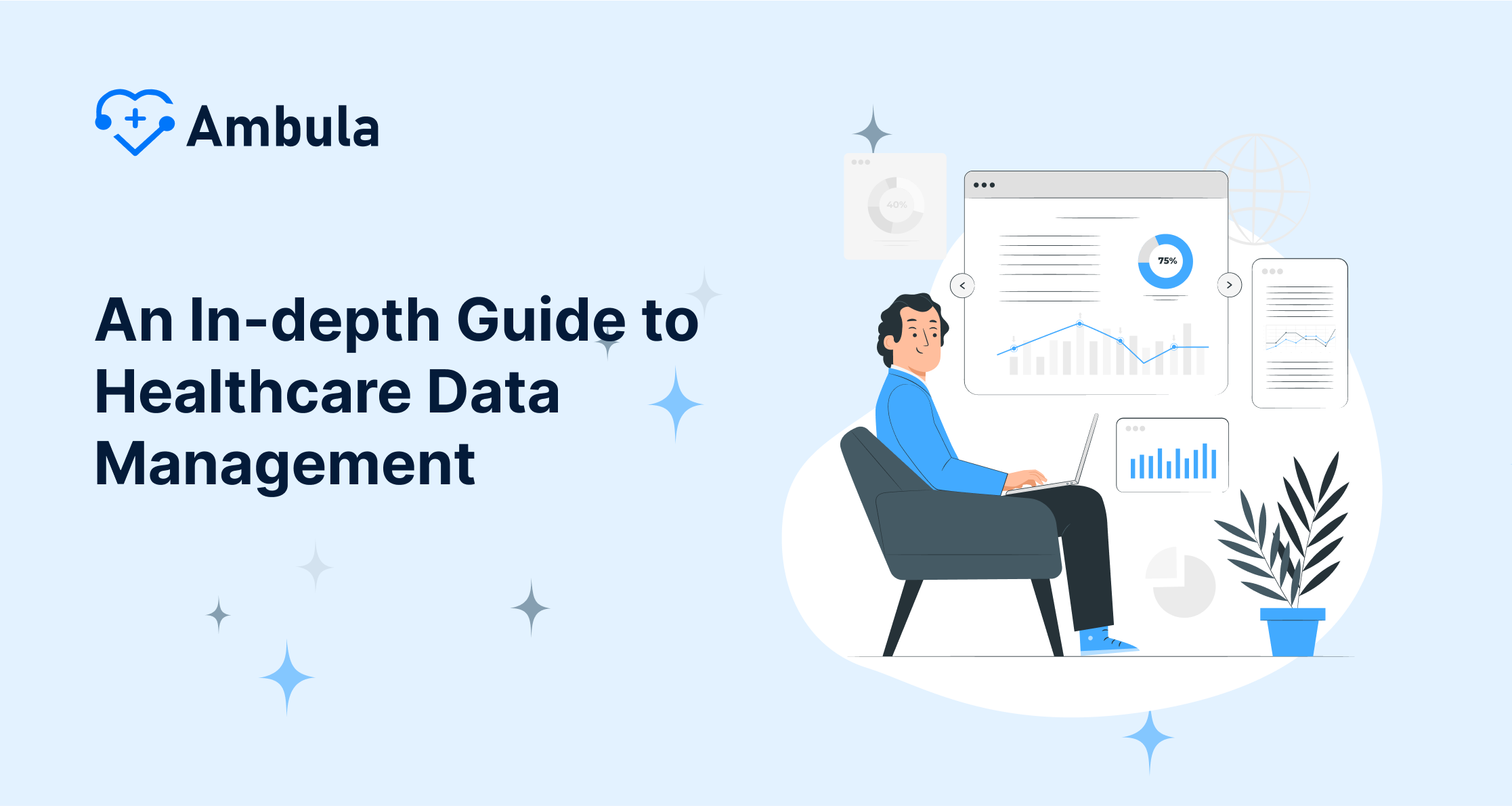
Managing health care data is now key for good patient care and better medical results. Every day, a huge pile of medical info piles up offering both chances and hard bits for health organizations. Managing this info right affects all stuff, from figuring out and fixing up patients to looking after the health of the whole bunch of people and digging into medical science stuff. With the health care world always changing, the call for strong plans to handle data is super urgent.
Organizations target a few crucial spots to make healthcare data management ace. They gotta set up safe and nifty data storage systems, whip out top-notch analytics tools for the sweet intel, and keep the data on the down low, abiding by the rules. Plus, tossing in fresh tech like “artificial intelligence” and “blockchain” is shaking things up in how we handle healthcare data. Zooming in on these bits helps the healthcare pros boost how they treat patients, makes their work smoother, and helps folks stay healthier on the big-picture scale.
Getting the Hang of Healthcare Data Management
Managing healthcare data has turned into a key part of delivering top-quality patient care and boosting medical results in today’s tech-driven world. This process takes medical info, turns it digital, and arranges it in a clear way. It covers loads of different types of information from many places. Health data management is all about understanding this complex info and using it to help healthcare groups, doctors, and most importantly, the well-being of patients.
Kinds of Medical Info
Healthcare groups gather and handle a bunch of different data types. They use each one for specific stuff like helping out patients better and making their own work slicker. Two main kinds of healthcare info that changed the game are the “Electronic Health Records” (EHRs) and “Electronic Medical Records” (EMRs). EMRs are just the techy version of someone’s old-school paper records at a single doctor’s office. But EHRs? They’re the big picture of a person’s health journey. Docs share them across various health joints so they can get the full scoop on a patient.
And hey, there are more critical healthcare data kinds to talk about:
- Each time someone hits up the doc or checks into the hospital, we get this thing called administrative data.
- Then there’s claims data. That’s all about the cash side of things when insured peeps get healthcare services.
- You’ve also got these lists called patient or disease registries packed with info on folks dealing with certain health conditions.
- Don’t forget health surveys. These bad boys give us the scoop on the nation’s well-being and how many people are fighting what sicknesses.
- And there’s the clinical trial data. That’s the deets collected when scientists are checking out new meds and treatments.
- Last up, we have genomic data. That’s the deep dive into an organism’s DNA and the nitty-gritty of its cells.
The Big Deal with Managing Data Right
Proper handling and analysis of healthcare data influence all parts of the health system, which includes both doctors and folks getting care. This data management can result in:
- Doctors and healthcare pros make smarter choices when deciding on treatments and help for patients.
- Understanding a patient’s health history in full leads to better care.
- Different doctors and health centers work together smoothly.
- Healthcare places plan and predict better for stuff like resources and staff.
- New ways to treat diseases come from progress in medical studies.
A Deloitte study showed that most health groups grab stuff like EMR summaries, claim details, and sign-up info, but the top-notch ones use extra things like online EMR streams and sickness program stats. This points to the chance of using more data in health stuff.
Issues with Managing Health Data
Even though it’s super important, keeping health data under control is tough, and there are a bunch of big issues:
- Medical data splits across many forms. You got your normal database stuff, plus pictures, videos, and fancy things like “DICOM” for MRI pictures. This mix-up means pulling everything into one spot for a patient’s info ain’t a walk in the park.
- Always gotta keep the data fresh ’cause healthcare keeps changing. Treatments get new twists, people’s health flips, and how docs do their thing shifts pretty often.
- Keeping patient data safe is super important, ’cause there’s a crazy number of online attacks and data leaks happening. I read somewhere that almost 64.65% of around 249.09 million health records got hit by cyber nasties and hackers in 2020 7.
- Now, when it comes to rules, health places have to stick to some tough ones, like HIPAA. Boy, that stuff’s tricky and a real headache to keep up with.
- The massive amount of healthcare data calls for a big investment in IT setup to manage it right.
- Getting various healthcare systems to share and make sense of data is still a huge trouble.
Tackling these hurdles is super important for health groups to tap into what their data can do, make patient results better, and crank up new ideas in the health world. As stuff about managing health info keeps changing, these groups gotta stay on their toes and put their money into solid strategies for handling data to keep leading in looking after folks and running a tight ship.
Optimized Healthcare Data Management’s Essential Parts
Governing Data
In making healthcare data management better, governing data is super important. It’s about getting the team to work together and make sure everyone’s taking care of playing their part right for the patient info that talks about who they are, where they live, and stuff 1. When folks get involved in setting up rules top ways to do things, and how-tos, governing data is a big help in making sure the patient info is top-notch all over the place 1.
So, what’s key in governing data includes:
- Running the show in Governance Management requires getting everyone on the team involved in calling the shots.
- In Communications, it’s all about getting the word out to the crew without wasting time.
- The person or people in charge of the Data Management Function has the task of keeping an eye on data quality and also joining in on the big decision-making meetings.
Links for you to peek at:
- Business Glossary, Metadata, and Data Standards: They create a unified group of patient demographic data pieces, layouts, norms, and regulations to document data.
Putting a governance method into action offers a bunch of pluses:
- Better knowing and joint accountability for sticking to data standards and keeping it top-notch.
- Getting stuff done quicker when you’re making rules and putting them to work.
- Better sticking to the rules we’ve got.
Putting Data Together
Healthcare data integration combines different data inputs into one dataset. This lets healthcare workers see the newest and most useful info. It gets rid of data barriers and creates a main source everyone trusts to make smart choices in the group.
New tech developments in healthcare data mixing have popped up:
- “Extract Transform Load (ETL)” makes moving big batch data and tinier, more regular updates easy, thanks to change data capture (CDC).
- “Enterprise Information Integration (EII)” gives a way to grab data when you need it, creating a company picture of the necessary data sources.
- “Enterprise Data Replication (EDR)” duplicates detailed data from various places and sends it to the places it needs to go, and does it as quickly as a wink.
- Data Visualization: Supports swift access to business intelligence by offering built-in links to -used data sources.
Still, when mixing health info together, folks run into several tough spots:
- No set ways to organize and connect stuff
- The whole privacy and keeping-data-safe headache
- What it takes: money and effort to get things going and keep ’em running
So, what do hospitals and such do to tackle these problems? They could :
- Figure out what data they need before they start collecting
- Apply super cool cloud stuff and APIs
- Teach their peeps about FHIR rules
- Use some smart data-crunching programs
- Decide who gets to peek at and sort out the info
- Make sure that data stays under lock and key
Keeping Data Safe and Secret
Keeping patient info safe is a big deal when managing healthcare data. “The Health Insurance Portability and Accountability Act,” or HIPAA, has tough rules to keep protected health info, or PHI, under wraps. The HIPAA Security Rule zeroes in on keeping electronic personal health details on the down low, and the Privacy Rule says no to sharing patient deets without the go-ahead first.
To stay on the right side of the law and look after touchy health deets, health places should get cracking on these top moves:
- Teach your team to make clever choices when they’re dealing with patient info.
- Make sure the people who should get into patient records and apps can.
- Put a stop to fishy or harmful data stuff as it’s happening.
- Keep an eye on who gets into info, apps, and other stuff.
- Scramble data when it’s being sent or sitting still to keep nosey folks out.
- For phones and tablets, you gotta have tough-to-crack passwords, ways to erase stuff from far away, and scrambled app data.
- Check for weak spots in how you protect stuff.
- Often Back Up Your Data: Make sure your data gets backed up away from your main location, with strict rules for keeping it scrambled and who gets in.
- Make Deals with Partners: Make sure the folks you do business with promise to keep personal health information real safe.
When healthcare groups put these essential parts into action, they sharpen up their ways of handling data. This means patients get top-notch care, things run smoother, and they tick all the boxes for rules and regs.
Tech Upgrades for A-Grade Health Results
Digital Patient Charts (EHRs)
Electronic Health Records, or EHRs, are changing up the healthcare game. They make sure doctors have the latest and best info about patients when they need it, which means they can get to the patient’s details super fast for better and more organized care. , these digital upgrades are making a massive difference in hospitals and clinics, making things better in a bunch of ways—like making care safer, more on point, more about the patient, smoother talking, teaching folks better, not wasting time doing stuff more and being fair to everyone.
EHRs rolling out has brought a bunch of perks for medical teams and their patients. When doctors examined their day-to-day with EHRs, they realized they could check a patient’s past health stuff even before they walked into the room, which is super handy and speeds things up. EHRs are also awesome because they let everyone get the doctor’s game plan in real-time, and they stop super important health details from disappearing into thin air.
EHRs boost safety stuff for patients. They give heads-ups about allergic stuff, which helps docs watch out for bad reactions when they’re telling someone what drugs to take. Plus, EHRs make it simpler to find and think about screw-ups in medical care, which means folks can work on ways to not make the same mistakes again.
Health Info Swaps (HIEs)
Health Information Exchange, or HIE, lets healthcare groups swap health details, sticking to accepted national standards. HIEs give both caregivers and insurers a peek into a patient’s full medical record with nifty tools like alerts about hospital visits, a system to check up on a patient’s past treatments, and reports on their medical encounters.
Putting HIEs to use has been a big win for everyone involved in health care. For the folks giving out care, HIEs have sparked better ways to handle bills, lifted the quality of clinical results, smoothed out patient transfers, and cut down on repeat or unneeded actions and tests. For the insurance side, there’s been a dip in medical costs smarter tracking of how patients move around and manage their health issues, and a goldmine of clinical info to dig into.
Digging into the latest studies about Health Information Exchange, or HIE, it turns out that most of the findings are pretty good. To get specific about 68.3% of the time, folks saw some nice outcomes, while a tiny 7.9% got hit with something not so great. Looks like HIE’s making things better when it comes to how hospitals work and keeping folks from needing a quick return trip within 30 days, getting admitted to the ICU or ER having to do the same scan twice, and the number of medical instructions given. Even better, HIE’s helping to slash the total cost of care, what you shell out for lab tests, and the dough for all those imaging tests.
Big Data Analytics in Healthcare
Big Data Analytics tackles major health industry challenges by tapping into vast and intricate data sets to boost the overall standard, productivity, power, and worth of health-related services and results. Bringing Big Data Analytics into the medical field means we get to take advantage of cutting-edge tech in treating patients and running health operations more.
BDA digs into info from loads of places like EHRs, telehealth, and keeping an eye on patients from far away. This deep dive lets doctors and health groups spot and guess what’s risky, what’s causing troubles, and which way diseases and stuff are heading. When they take a good look at patient info and think about how much treatments cost and if they’re worth it, they can figure out which options are top-notch and don’t burn a hole in the wallet.
The power of BDA in health services packs a big punch. This tech boosts support for clinical decisions, giving tips for diagnosis or treatment from top-notch practices or care standards. Plus, it’s great for upping the game in clinical quality by spotting or stopping goof-ups in diagnosis or treatment that pop up when you’re checking against quality standards or markers.
Wrapping this up, when you mesh together those EHRs, HIEs, and BDA for healthcare, it’s like a game changer for patient treatment, making things better and cutting down on bucks. As these fancy tech words get more play and level up, they’re gearing up to push the health biz into a zone where it’s all about the numbers doing things slick and making sure care is tailored to you.
Conclusion
The optimization of healthcare data management has a profound influence on patient care, operational efficiency, and medical research. By focusing on key components such as data governance, integration, and security, healthcare organizations can unlock the full potential of their data assets. This leads to better-informed decisions, improved patient outcomes, and more streamlined processes across the healthcare ecosystem.
The integration of advanced technologies like Electronic Health Records, Health Information Exchanges, and Big Data Analytics is causing a revolution in healthcare delivery. These tools enable healthcare providers to access comprehensive patient information, share data securely, and gain valuable insights from large datasets. To move forward, healthcare organizations need to keep adapting to new technologies and data management strategies to stay at the forefront of patient care and operational excellence.
FAQs
How can healthcare outcomes be enhanced through data analytics?
Data analytics can significantly boost healthcare outcomes by analyzing patient data to identify individuals at high risk for certain diseases or complications. Predictive models can detect early signs of chronic diseases, allowing for timely interventions and preventive care, ultimately reducing hospitalizations and improving health outcomes.
What strategies can healthcare managers employ to enhance the performance of their teams?
Healthcare managers can enhance team performance by promoting effective communication and teamwork among various healthcare professionals, such as doctors, nurses, allied health workers, and support staff. This collaborative approach fosters more comprehensive patient care, leading to improved health outcomes.
What are some effective methods to improve data management in healthcare?
Improving data management can be achieved through several key steps:
- Assume responsibility for knowledge management.
- Establish a unified data foundation.
- Effectively manage metadata.
- Strategize your data delivery methods.
- Implement consistent data governance policies.
What are various ways to improve health outcomes in healthcare settings?
Healthcare organizations can improve patient outcomes by adopting the following practices:
- Enhance patient communication, as it is crucial for better outcomes.
- Support optimal and evidence-based care practices.
- Prioritize preventive care to prevent health issues before they develop.
- Implement safety practices for inpatients.
- Make use of technology to streamline and enhance healthcare processes.
- Leverage data and analytics to inform and improve treatment decisions.

